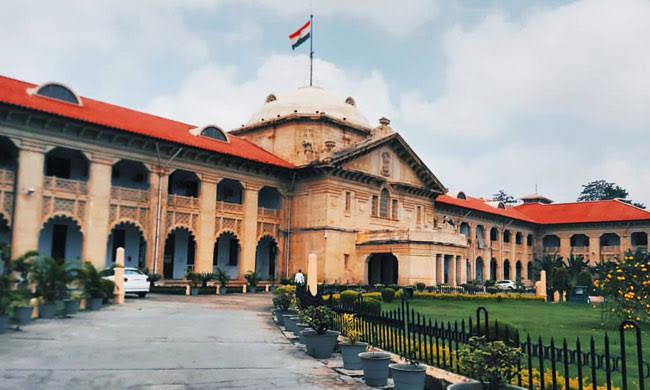


The Allahabad High Court recently ruled that a person who has converted to a religion before the enactment of the Uttar Pradesh Prohibition of Unlawful Conversion of Religion Act, 2021 would still have to comply with its provisions to validate a marriage performed after the anti-conversion law came into force [Smt Nikitia @ Najrana And Another v. State of UP And 3 Others]. The Court made the observation while dealing with a plea for protection by a couple who had married in 2024 after one of the partners converted to Hinduism in 2017.It rejected an argument made by the couple that no "fresh conversion" in compliance with the 2021 anti-conversion law was required since the religious conversion took place in 2017.Justice Kshitij Shailendra explained that the anti-conversion law envisages that if conversion is done in relation to the marriage of persons belonging to different religions, the parties have to ensure compliance with its provisions "irrespective of any past event."The Court added that past conversion may be a relevant fact during the district magistrate's inquiry under the 2021 Act. However, this in itself would not be substantive proof of a valid conversion to attach sanctity to a marriage performed after the 2021 Act came into force, the Court said.“Therefore, the concerned party to a proposed inter-faith/inter-religion marriage has to comply with the provisions of the Act,” it ruled.The Court passed the order in a petition moved by a Hindu couple seeking directions against any interference with their marriage. Counsel for the State informed the Court that while the man belongs to the Hindu religion, the woman he has married was earlier a Muslim. In this context, he argued that unless the 2021 anti-conversion law is complied with, no sanctity could be attached to the marriage.However, counsel representing the petitioners submitted that the conversion certificate was issued in 2017 and the Act only came into existence in 2021.Thus, he argued that provisions of the 2021 law would not be applicable. A conversion certificate issued by an Arya Samaj Mandir was produced before the Court.While analysing the anti-conversion law, the Court decided to focus on the purpose and object of the legislation."The more stringent the Law, the less is the discretion of the Court. Stringent laws are made for the purpose to achieve its objectives. This being the intendment of the legislature, the duty of the court is to see that the intention of the legislature is not frustrated. If there is any doubt or ambiguity in the statutes, the rule of purposive construction should be taken recourse to, to achieve the objectives," the Court added.The Court concluded that the law requires the parties to ensure compliance with the anti-conversion law even if conversion has happened earlier.It also noted that the marriage between the petitioners was stated to have been performed on January 2 this year, when the 2021 Act was already in force.“Therefore, before the date of marriage, the petitioners should have complied with the provisions of the Act, in case, they wanted to attach sanctity/legality to the conversion, which is now controlled and governed by the enactment passed by UP Legislature,” the Court held.Justice Shailendra thus disposed of the petition with the liberty to file it afresh after ensuring compliance of the 2021 Act.Advocate Sanjay Kumar Srivastava represented the petitioners.Standing Counsel Yogesh Kumar represented the State.
TAGS: Allahabad High Court Anti-Conversion Law Uttar Pradesh Unlawful Conversion of Religion Act 2021